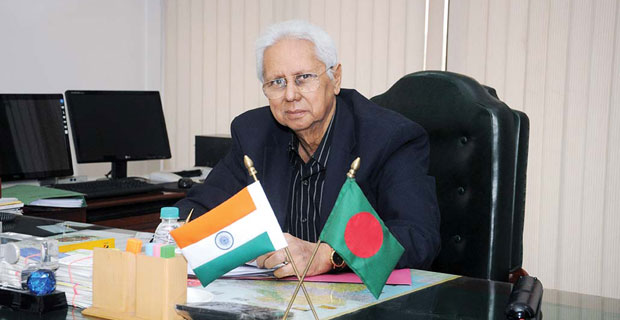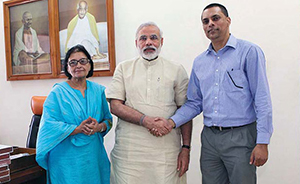“Our bilateral relations have been termed the best ever”
On the eve of our Forty Seventh Anniversary of our Independence and National day, permit me to recall, with deep appreciation ...
As High Commissioner, going forward in which areas specifically do you see relations getting strengthened?
I would say that the recent developments have taken our bilateral ties to a new multi-dimensional, multi-faceted and comprehensive platform. As the External Affairs Minister Shrimoti Sushma Swaraj said during her last visit to Dhaka, the current relations covers virtually all areas of human endeavour and we must maintain the current tempo.
Amidst all these success stories, our progress on the water sharing issue has been slow. Bangladesh and India share 54 common rivers and the issue of water sharing has been a sensitive and delicate issue as it has a direct impact on our food production as well as wellbeing of our teeming millions. Ganges Water sharing agreement was signed during Prime Minister Sheikh Hasina’s first term. After assumption of power in 2009, she took the initiative to break the deadlock on the Teesta Water sharing issue. The two countries had also worked out a solution for an interim water sharing agreement in 2011 but it could not be concluded due to last minute opposition by the West Bengal Government. Since then, the Union Government has been undertaking internal consultations with the Government of West Bengal and Prime Minister Modi has assured Bangladesh that a mutually acceptable agreement would be finalized soon. The common rivers which we share require joint management as constant siltation has significantly reduced their navigability which, in turn, has adversely impacted our riverine connectivity, food production and promotion of tourism.
Bangladesh also figures prominently in Prime Minister Modi’s “Look and Act East” policy and both the countries are currently working for strengthening sub-regional cooperation between Bangladesh, Bhutan, Nepal and North-East India through intensified connectivity under the aegis of the BBIN. Taking advantage of her unique geographical location, Bangladesh is also poised to play its natural role as a hub of connectivity. We are keen to establish seamless connectivity for the whole region including India, as this would bring about unprecedented benefit to all the countries. Bangladesh is also actively participating in other inter regional connectivity projects under the aegis of BIMSTEC and BCIM. All these prove our commitment to establish a better connected South Asia. We must maintain the current momentum with a view to establishing a win-win equation for the benefit of our two countries and beyond.











Comments.